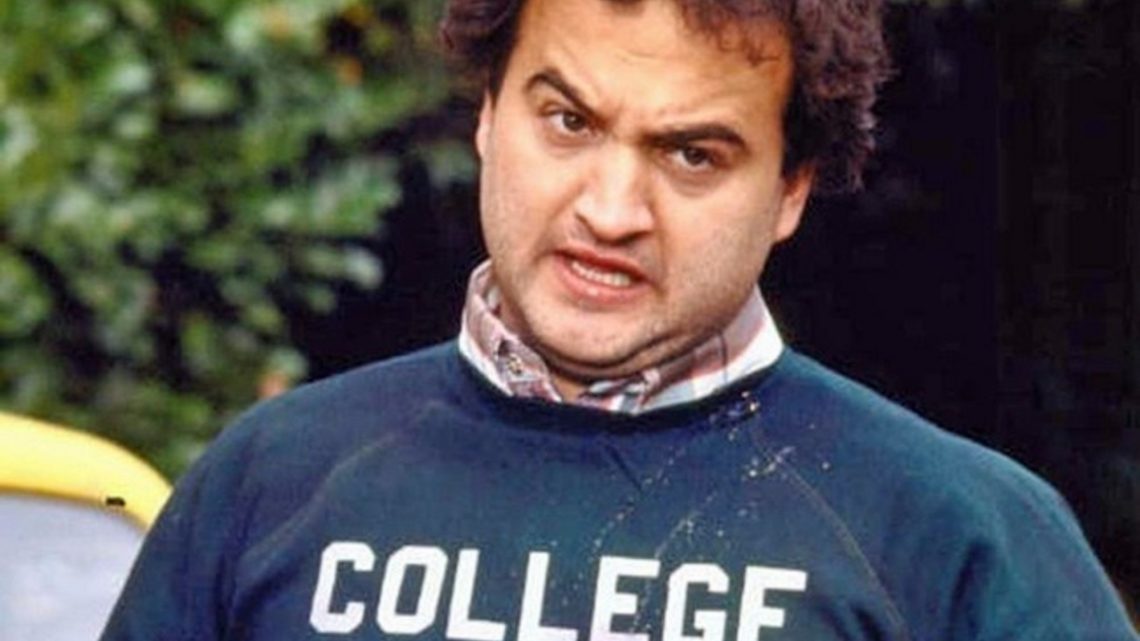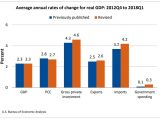
Celebrate the 40th Anniversary of ‘Animal House’ by Tossing It in the Trash
July 27, 2018It's difficult to imagine what it was like when Animal House dropped into theaters on July 28, 1978, exactly 40 years ago. It landed like the opening of a revolution and spread through the country like a virus, eventually grossing over $500 million in today's dollars and becoming part of the DNA of every campus comedy for the next few decades. The tropes more or less invented by the film include rebellious frats, disapproving deans, "double secret probation," and toga parties. "Cult movie" doesn't do it justice—it's an entire religion. The poster of John Belushi in his "COLLEGE" sweater was still a staple of dorm rooms when I went to college in the 2000s, and for all I know it still is. Animal House will never die. The question is, should it?
Like anything that achieves that level of cultural saturation, Animal House is bigger and smaller than itself. Bigger because it has been referenced and parodied so many times that it's impossible to avoid its influence, and smaller because what we tend to remember about it is only a fraction of the film. Everyone remembers Belushi's bits—the guitar smashing, the whiskey chugging—and the final parade of destruction and a half-dozen other jokes that have become touchstones ("fat, drunk and stupid is no way to go through life, son"). We also probably know the scenes that look the worst to modern sensibilities: the all-white gang taking some girls to an all-black bar and getting scared away by threatening patrons; Belushi spying on sorority girls getting undressed in a segment whose main thrust is, "Hey check out these hot girls!!"
When you watch it for the first time in a long time, like I did last week, it's an odd experience because you get all of those iconic scenes but also plenty more that haven't lodged in the universal cultural consciousness—like the bits where one of the Omega frat villains can't get hard during businesslike handjobs from his big-haired girlfriend, which should be in the comedy museum along with Belushi's stunts. You also remember that expectations were different for comedies back in 1978. Animal House is anarchic but it's also fairly slow by today's standards, and it doesn't cross the gross-out thresholds comedies routinely hop over in 2018; when Kent Dorfman pukes on the dean, we don't actually see any puke. Some of the jokes are groan-inducing today, like when a scantily-clad woman falls through a Playboy–reading kid's window and he yells, "Thank you, God!"
Standards were different in all sorts of ways, of course, and the film is certainly "problematic," as the kids today say. The loose plot is basically that a bunch of college dudes get fucked up all the time and try to sleep with a bunch of women and girls—including a 13-year-old—sometimes by lying to them, sometimes by getting them drunk. (At one point, one of our heroes thinks about molesting the 13-year-old while she sleeps, but decides not to.) Because of this misbehavior, they get kicked out of school, and respond by crashing a parade and causing a brawl. Oh yeah, and everyone involved is white, obviously. There are female characters but most of them are primarily sex objects. (The exception, Katy, played by Karen Allen, mostly exists to tsk-tsk her boyfriend's bad behavior, but it must be said she gets some good lines and also bangs Donald Sutherland's professor.)
Just as it's difficult to imagine watching Animal House in 1978, it's difficult to imagine coming to it today never having seen it before. Drunken frat boys don't seem so charming anymore, the film's gender politics are fucked beyond repair, and there's no one to latch onto as a sympathetic character, save for maybe Katy, or maybe the women exploited by the protagonists. If you went in knowing nothing about it, you might see it as a clunky piece of Boomer-made nostalgia. The whole drinking-is-awesome ethos is tired, the nudity is boring unless you're a horny 14-year-old, and so many of the movies Animal House inspired are terrible. If we didn't have Animal House we wouldn't have the American Pie franchise, which should tell you how much of a mixed bag its legacy has been. If you had an Animal House poster on your dorm wall, you were probably a sad, weird loser and if you have one in your dorm today, guess what?
To see how times have changed since the Deltas roamed the screen, take a look at some of their most obvious descendants: the good-hearted louts of the Judd Apatow industrial complex. Those movies, from Superbad to Pineapple Express, make sure to show the messy stoners learning that actually, society is good and you should stop being such a fuckup and improve yourself and get a girlfriend. Animal House contains no feel-good moral. The moral is, "See those people, the respectable ones who have cars and houses and tell you what's right? Yeah, fuck them."
That borderline nihilism that was at the heart of Animal House doesn't play today, when there is so much to care about. It seems self-indulgent rather than righteously rebellious. The transgressive bits just seem mean. Producer Ivan Reitman said black audiences loved the bar scene, and Richard Pryor gave it his blessing, but it wouldn't make it into any movie today. Nor would most of Animal House.
That doesn't mean the movie deserves to be banned or condemned, but it has lost the meaning it once had. In 1978, the Nixonian country club hypocrites the film was obviously taking down had real-life analogues. The Vietnam War had ended just a few years prior, and it was very clear the people running the country had no fucking idea what they were doing. Throwing a brick through their window, cinematically or otherwise, felt like justice. That's what the team behind National Lampoon, who created Animal House and so much of what is modern American comedy, were doing. It was also what films like The Bad News Bears, Slapshot, and Kentucky Fried Movie—all mid-70s releases—were doing, and what Caddyshack would do in 1980.
The slobs vs. snobs dynamic seems dated, especially with one particularly nasty slob now running the country and doing a pretty bad job of it. (It makes you nostalgic for the previous generation of country club asshole, who were at least better read.) The anti-authoritarian edge Animal House once had has been dulled with time, and its jokes have become moldy and occasionally toxic, which even the people who made it will admit: "You cringe at it in a way, but it’s an interesting kind of cringe," Karen Allen told the New York Times earlier this year in an oral history of the film.
It should go without saying that none of this is Animal House's fault. How many comedies still retain their full force and power for 40 years? But it changes how we should watch the film and how we think about it—it's a comedy artifact, a work of art that now requires historical context to fully grok.
People who love Animal House face a different challenge, which is to recognize how the world has changed. This isn't a unique problem—countless works of art that were once revered contain notes that sound sour to contemporary ears. Cartoons that feature racist caricatures. Sitcoms where ethnic characters appear infrequently and always as punchlines. Film after film where the cool rebellious badass treats women with casual cruelty. I think National Lampoon in the early 70s contained some amazing, groundbreaking humor. I also know it routinely featured depictions of women that were grotesque and oversexed. What are we supposed to do with all this fucked-up cultural flotsam we inherited from the past?
We could never wipe Animal House from the face of the earth even if we wanted to; its influence is too vast, and its best jokes are justifiable classics. So put the movie on a pedestal, induct it into whatever hall of fame, move it into a museum, fine. You know who visits museums? Nobody.
Sign up for our newsletter to get the best of VICE delivered to your inbox daily.
Follow Harry Cheadle on Twitter.


